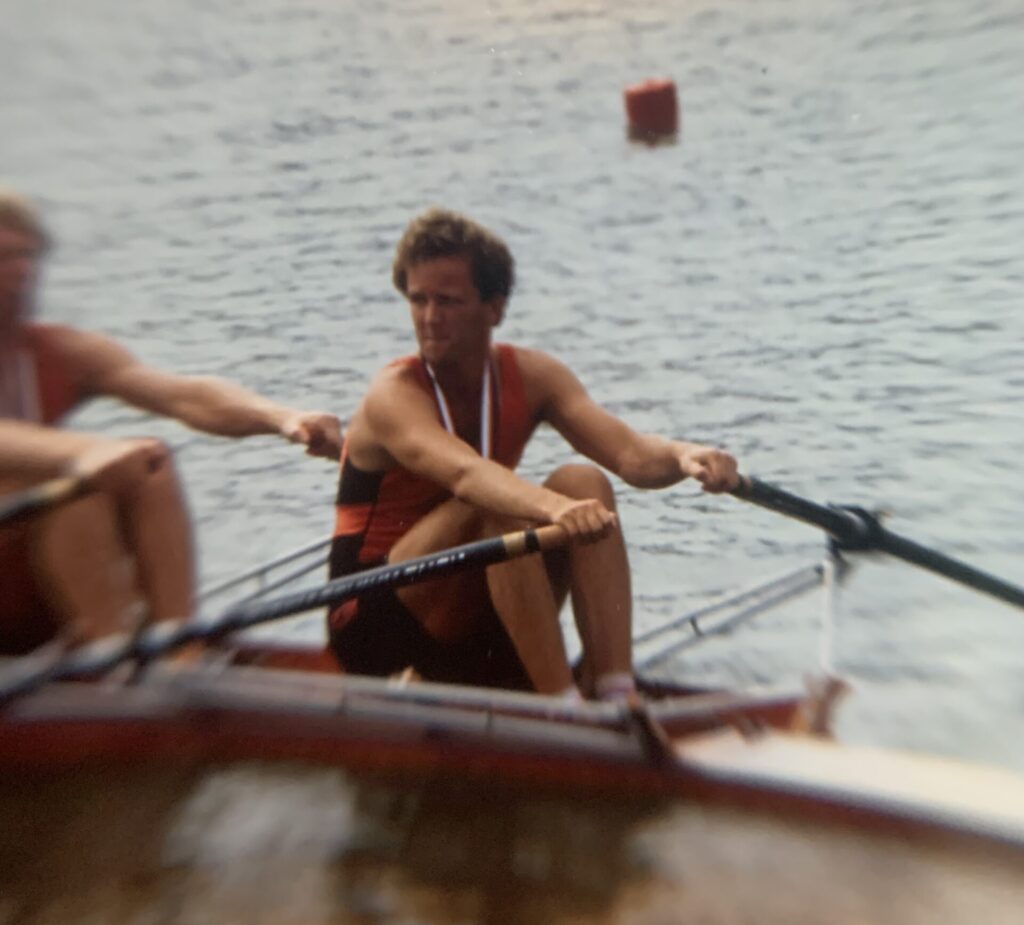
06 Apr 2022
Where are they now? Nico Rienks
“If you are highly motivated and disciplined about something, you can achieve a lot. Investment pays off. Personally, I was not a great talent at all. Certainly not physically. But by gradually getting a little better each year and finally I was able to win medals.” – Nico Rienks
Just yesterday, Nico Rienks got out his single sculls and went for a row. The two-time Olympic Champion from the Netherlands is now 60 years old and rowing remains very much a part of his life.
Named the Dutch Rower of the Century, Rienks was at the forefront of the rise in Dutch rowing through the 1980s. He took gold at the 1988 Olympic Games in the double sculls and came back to take a bronze in 1992. He then joined his nation’s eight to win a second rowing gold at the 1996 Atlanta Olympics. In 2004 he was awarded World Rowing’s Thomas Keller Medal.
Rienks looks back on his rowing career and pinpoints his stand-out memory as being part of a small, but growing Dutch national team that was getting better with every year.
“That memory and the feeling in itself that you can handle the whole world when you are young, healthy and fit is wonderful. And, of course, our first great victory, the proof that we had done well, the gold medal with Ronald Florijn in the double scull at the Olympics in Seoul 1988.”
After winning gold in the eight, Rienks decided it was time to stop rowing. He’d already established his own business and was starting a family. Then in 1998 Rienks was tempted back into rowing to help qualify the eight for the Sydney Olympics. They qualified but did not place at the Games. “So I really stopped competitive rowing in 2000. Apart from the private circumstances mentioned, I was physically definitely past my best by then.”
Feeling that he had to compensate from time away from his family and not doing enough for his business, Rienks took a complete break from rowing. He gained 10 kilos and, he says, his health suffered. Rienks started rowing again and also took up cycling. He hasn’t stopped since and his Olympic eight sill meets up regularly for a row.
“Last weekend we rowed the Head of the river Amstel in Amsterdam with four of our Atlanta Holland Eight. Even our own coxswain steers now and then. We are not going as fast anymore, but it feels good in every aspect!”

Rienks rows or bikes four to five times a week. He admits, however, that he’s rarely competitive. “Perhaps this is because I used to be very tired during my competitive rowing career so now I tend to do sport relatively quietly.”
On and off the water rowing has remained a huge part of Rienks’ life. His wife rows and now both of his sons row. Rienks also stays involved through coaching, the organising committee of the Holland Cup and he’s also been a member of the National Anti-doping Commission and National Athletes’ Committee.
Rienks’ success has not been forgotten. “I am still recognised from time to time. Often people think that I live a block away or that I used to be in their class at school. That’s also because I occasionally commentate on TV during Olympic rowing events.”
The company that Rienks started when he was still rowing became one of the bigger occupational health and safety services in the Netherlands. “It has recently been sold,” says Rienks. “I am currently busy building up a new company. This company is also active in the healthcare sector, mainly in the preventive field.”
And what would Rienks tell his younger self?
“The aiming for a gold medal is a super high priority for top-athletes, but make sure you combine it well with all kinds of other things in life. If your life is in order, you can keep up top sports better and longer. In my opinion, this is also the best guarantee for success in sport.”

